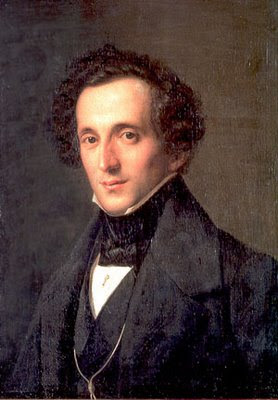Trio con Brio Copenhagen

Trio con Brio Copenhagen at Library of Congress
Washington Post, February 20, 2009
Trio con Brio Copenhagen with James Dunham, viola
Library of Congress
Mendelssohn, Piano Quartet No. 3; Song without Words, op. 109
Beethoven, "Archduke" Trio
Washington-area readers should bookmark the URL for classical music reviews that are appearing only on the Washington Post Web site -- visit it now and often! The best way for classical music lovers to tell newspaper editors that they want to read about classical music in the paper is to click through to articles on classical music and -- this is key -- leave online comments, positive or negative, on those articles. Professor R. Larry Todd, the preeminent Mendelssohn scholar who teaches at Duke University, gave an excellent pre-concert lecture, some of which I quoted in my review for the Post. He spoke about Mendelssohn as prodigy, noting that the young man played the piano and organ, but also the violin and viola, at least well enough to participate in performances of his own string octet. Mendelssohn was a polylinguist, who spoke French and English fluently (the Library of Congress displayed one of the composer's letters in English at the concert) and read Latin and Greek. He also had great talent at drawing and painting, leaving behind many watercolors from his travels around Europe (the display case also contained two of the composer's drawings, of the town of Amalfi and a view of St. Paul's in London). With sound examples from Mendelssohn's early string symphonies, Prof. Todd traced the main compositional influences on the young composer, the heavily chromatic fugues reminiscent of Bach and the crisp Classical forms that sound like Mozart.
Professor R. Larry Todd, the preeminent Mendelssohn scholar who teaches at Duke University, gave an excellent pre-concert lecture, some of which I quoted in my review for the Post. He spoke about Mendelssohn as prodigy, noting that the young man played the piano and organ, but also the violin and viola, at least well enough to participate in performances of his own string octet. Mendelssohn was a polylinguist, who spoke French and English fluently (the Library of Congress displayed one of the composer's letters in English at the concert) and read Latin and Greek. He also had great talent at drawing and painting, leaving behind many watercolors from his travels around Europe (the display case also contained two of the composer's drawings, of the town of Amalfi and a view of St. Paul's in London). With sound examples from Mendelssohn's early string symphonies, Prof. Todd traced the main compositional influences on the young composer, the heavily chromatic fugues reminiscent of Bach and the crisp Classical forms that sound like Mozart.
Prof. Todd also spoke about Beethoven and the "Archduke" Trio, the last piece that Beethoven played in public, with disastrous results due to his increasing deafness. He presented a convincing portrait of Beethoven as a "frustrated opera composer," pouring his dramatic aspirations into his instrumental music, marked as it is by stories of conflict and resolution. Like the opening of the fifth symphony, conflict is created in the first movement through interruption, as the piano's introduction of the theme is halted by the violin and cello. Perhaps because of focusing on Schubert's last piano sonata recently, due to the concert by Radu Lupu, the similarity between the first movements of that work and the "Archduke" is worth noting: same meter, same key, similar melody, same kind of figuration, interrupted by a trill.
In response to my question about the existence of documents proving a torrid love affair between Mendelssohn and the Swedish soprano Jenny Lind, a story broken by Jessica Duchen in The Independent, Todd was circumspect. He has written to the Royal Academy of Music but had no specific knowledge of the documents, saying that a committee would meet in May to decide the question of public access. He professed amazement that "it would take a scandal to get people interested in Mendelssohn," but said that ultimately the attention would be good for the composer. The description of the supposed letter seems to fit with Mendelssohn's psychological state, consistent with his other letters, and seems especially plausible if it occurred in the last few months of his life, after the death of his sister, which was mentally devastating to the composer. If it is true, he noted with a sigh, it will mean a serious reconsideration of the last few years of Mendelssohn's biography. Stay tuned.





















































No comments:
Post a Comment